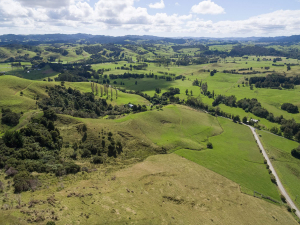The Coalition Government has suspended the controversial Significant Natural Areas (SNA) rules, bringing joy to farmers and an angry reaction from environmental watchdogs.
Associate Environment Minister Andrew Hoggard says the Government has agreed to suspend the requirement for councils to comply with the Significant Natural Areas (SNA) provisions of the National Policy Statement for Indigenous Biodiversity for three years, while it replaces the Resource Management Act (RMA).
The SNA provisions relate to the protection of areas of significant indigenous vegetation and significant habitats of indigenous fauna. The Resource Management Act (RMA) 1991 Section 6 requires that they are protected. Councils are responsible for identifying SNAs in their territory.
“As it stands, SNAs identified on private property limit new activities and development that can take place on that property. In their current form they represent a confiscation of property rights and undermine conservation efforts by the people who care most about the environment: the people who make a living from it,” says Hoggard.
“As part of the ACT-National coalition agreement the Government committed to ceasing the implementation of new SNAs. This work will be carried out as part of the Government’s RMA reforms. For now, the Government has agreed to suspend the obligation for councils to impose SNAs under the NPS Indigenous Biodiversity, and we’re sending a clear message that it would be unwise to bother.
Federated Farmers biodiversity spokesperson Mark Hooper says the suspension of SNA rules is a positive step forward for both farmers and New Zealand’s biodiversity.
"These unworkable rules were universally despised by farmers, and we’re pleased to see the back of them," says Hooper.
"Farmers opposed these rules because they infringed on our property rights and added endless layers of unnecessary complexity, compliance and cost - for very little environmental gain.
"They risked driving perverse outcomes where farmers actively choose to plant exotic species instead of natives because the Government have just made everything too hard."
The simplification of SNA provisions was one of Federated Farmers' top priorities in their 12-point plan for restoring farmer confidence.
But the Environmental Defence Society describes the move as the latest in a rolling maul of attacks on the constitution and environment by the Government.
“Today’s announcement is driven by a minor party. It represents Executive overreach in a way not seen since the 1970s,” said EDS chief executive Gary Taylor.
“Minister Hoggard is showing a reckless disregard for the rule of law. He is directing councils to break the law.
“The proper way to suspend work on SNAs is to change the National Policy Statement on Indigenous Biodiversity through the legal process set out in the Resource Management Act. That process allows for public engagement and ensures evidenced-based decision-making.
“Ministers do not have power to suspend legal requirements by Executive fiat. Councils must ignore this latest directive.”
But Hoggard says the Government is firmly committed to protecting property rights.
He points out that New Zealand currently has 180,000 hectares of privately-owned land in QEII covenants.
“The impressive engagement and growth of QEII covenants – all voluntary – shows that private landowners do care about conservation. This Government will be taking a collaborative approach with them, rather than undermining their rights.
“This Government is firmly committed to protecting New Zealanders’ property rights. If government takes away property rights, there’s no incentive to be a conservationist. Ill-conceived regulations such as SNAs and the NPS Indigenous Biodiversity put roadblocks in place and turn biodiversity and conservation efforts into a liability.”



















